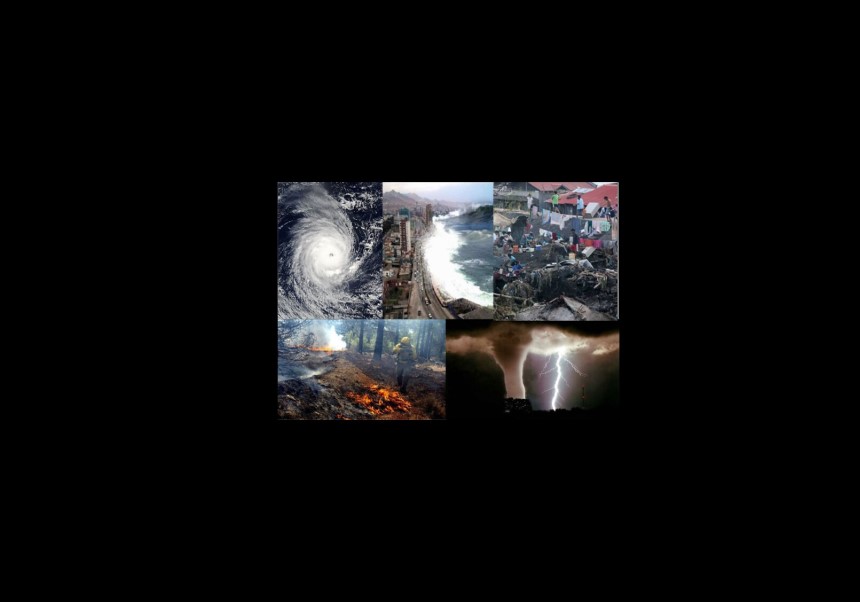
The Desertification Research Center (CIDE, CSIC-UV-GVA) coordinates this work, which proposes a new approach to major disturbances in human societies.
The incorporation of the ecological theory of disturbances would help society to better understand and prepare for new catastrophic events such as earthquakes or epidemics.
A study published in the journal People and Nature by researchers from the Desertification Research Center (CIDE), a joint center of the Spanish National Research Council (CSIC), the University of Valencia (UV) and the Generalitat Valenciana, in collaboration with the University of Granada (UGR), addresses the analysis of catastrophic events from the point of view of the ecological theory of disturbances.
According to this theory, ecological disturbances are considered as elements of ecosystems, and contribute to their modeling and dynamics. Similarly, the researchers in this paper propose to consider catastrophic events also as inherent to human societies and partly responsible for their evolution. From this perspective, fires, hurricanes, epidemics, wars, earthquakes, volcanic eruptions, etc., are disturbances inherent to societies and should be considered as another element to be taken into account and to be prepared for in order to increase the resilience of today's society and facilitate its recovery after their occurrence.
"Fires are inevitable, and plants have evolved to adapt to them. Classical ecology considers disturbances as external factors that come from outside and destroy nature. However, when they are included as part of natural systems, we can really understand the ecological and evolutionary functioning of ecosystems," explains Juli G. Pausas, CSIC researcher at CIDE and lead author of this work.
The idea of the CIDE researcher, together with Alexandro B. Leverkus, from the UGR, was to apply the same reasoning and techniques to social systems. "When you consider perturbations such as earthquakes, wars or epidemics as intrinsic to societies, and you use concepts from perturbation ecology such as the perturbation regime with a long-term view, you realize that the dynamics in social systems are similar to natural ones and you can study their evolution. This could help us understand them and prepare ourselves better," say the researchers, who point out that the challenge lies in promoting actions and policies to be prepared for unknown events, "because they will come sooner or later.
Preparing for the unknown
Although major catastrophes are rare and unpredictable, they have occurred throughout human history and will continue to occur in the future. Therefore, "understanding that they are key components of the cultural evolution of societies is increasingly important in an era when the climate is changing, humans are overexploiting natural resources, and humanity is dense and hyperconnected," they explain in the study.
Earthquakes, hurricanes, wars and pandemics, among others, abruptly change the dynamics of human societies. The effects of disasters, measured in terms of loss of human life or damage to infrastructure, depend not only on their extent or magnitude, but also on the characteristics of the societies in which they occur (i.e. their vulnerability). Dangerous diseases cause fewer fatalities if they occur in wealthy societies with well-prepared health systems, while small earthquakes can be devastating if building materials are deficient. Therefore, "incorporating shocks into the dynamics of social systems, rather than considering them as an external factor, is key to being able to live with them," explains Alexandro Leverkus.
Building resilience
Disruptions may temporarily disrupt the functioning of societies, but in the long term, they can produce social adaptations that enable us to cope with future events. Fires in urban areas have forced improved building standards, diseases have stimulated vaccination campaigns and medical response infrastructures, and tsunamis have led to global warning systems. While we can control some impacts of disturbances based on our experience of past events, we cannot avoid them all, and we inadvertently create new disturbances as society changes.
Therefore, with this new approach, "as we face new risks from global societies and environmental changes, understanding disturbances in human societies can help develop policies to improve the capacity to buffer their impacts and to achieve a faster and more complete recovery," concludes the CSIC researcher.
Reference:
Juli G. Pausas, Alexandro B. Leverkus, Disturbance ecology in human socities. People and Nature. 2023. DOI: https://doi.org/10.1002/pan3.10471
CIDE Comunication









